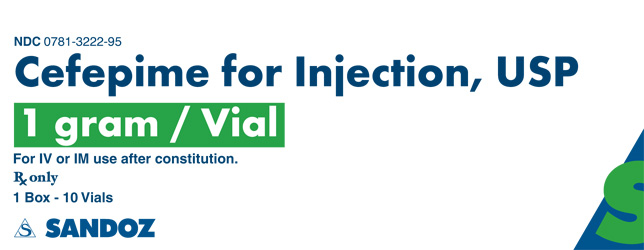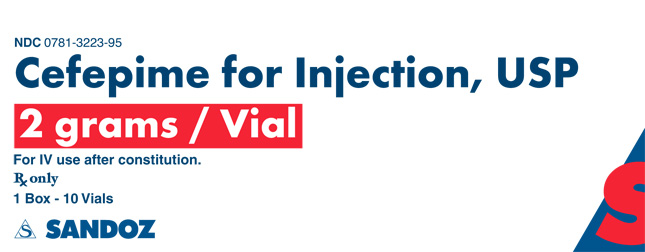
Cefepime Hydrochloride Injection, Powder, For Solution while Breastfeeding
What is Cefepime Hydrochloride Injection, Powder, For Solution used for?
Is Cefepime Hydrochloride Injection, Powder, For Solution safe to use while breastfeeding? Can it interfere with growth and development of my kid?

Nursing Mothers Cefepime is excreted in human breast milk in very low concentrations (0.5 mcg/mL). Caution should be exercised when cefepime is administered to a nursing woman.
Cefepime Hydrochloride Injection, Powder, For Solution Breastfeeding Analsys
Cefepime while Breastfeeding
SafeCAS Number: 123171-59-5
Fourth-generation cephalosporin for injection or parenteral administration. Like most cephalosporins for which data are available, excretion occurs in breast milk in very small amount and it is clinically insignificant (Sanders 1993, Bristol-Myers Squibb 2009). Cephalosporins are widely used in the Pediatric practice with a good tolerance, even in the neonatal period, so it is very unlikely that in small amounts through milk would be a cause of problems in the infant. Be aware of the possibility of false negative results of cultures in febrile infants whose mothers are taking antibiotics as well as the possibility of gastroenteritis (Ito 1993) by altering the intestinal flora.
Cefepime Hydrochloride Injection, Powder, For Solution Breastfeeding Analsys - 2
Cefepime while Breastfeeding
CAS Number: 88040-23-7
Although no information is available on the use of cefepime during breastfeeding, the levels in breastmilk appear to be low and cephalosporins are generally not be expected to cause adverse effects in breastfed infants. Occasionally disruption of the infant's gastrointestinal flora, resulting in diarrhea or thrush have been reported with cephalosporins, but these effects have not been adequately evaluated. Cefepime is acceptable in nursing mothers.

What if I already have used Cefepime Hydrochloride Injection, Powder, For Solution?
Cefepime Hydrochloride Injection, Powder, For Solution is safe in breastfeeding and should not create any health problem for your baby but in case you feel any health issue associated with Cefepime Hydrochloride Injection, Powder, For Solution you should contact your doctor or health care provider. Be it pregnancy or lactation you shall keep your doctor informed.
My health care provider has asked me to use Cefepime Hydrochloride Injection, Powder, For Solution, what to do?
Definitely, Cefepime Hydrochloride Injection, Powder, For Solution is safe in lactation for baby. No wonder your doctor has recommended it.
If I am using Cefepime Hydrochloride Injection, Powder, For Solution, will my baby need extra monitoring?
No extra baby monitoring required while mother is using Cefepime Hydrochloride Injection, Powder, For Solution
Who can I talk to if I have questions about usage of Cefepime Hydrochloride Injection, Powder, For Solution in breastfeeding?
US
National Womens Health and Breastfeeding Helpline: 800-994-9662 (TDD 888-220-5446) 9 a.m. and 6 p.m. ET, Monday through Friday
UK
National Breastfeeding Helpline: 0300-100-0212 9.30am to 9.30pm, daily
Association of Breastfeeding Mothers: 0300-330-5453
La Leche League: 0345-120-2918
The Breastfeeding Network supporter line in Bengali and Sylheti: 0300-456-2421
National Childbirth Trust (NCT): 0300-330-0700
Australia
National Breastfeeding Helpline: 1800-686-268 24 hours a day, 7 days a week
Canada
Telehealth Ontario for breastfeeding: 1-866-797-0000 24 hours a day, 7 days a week
